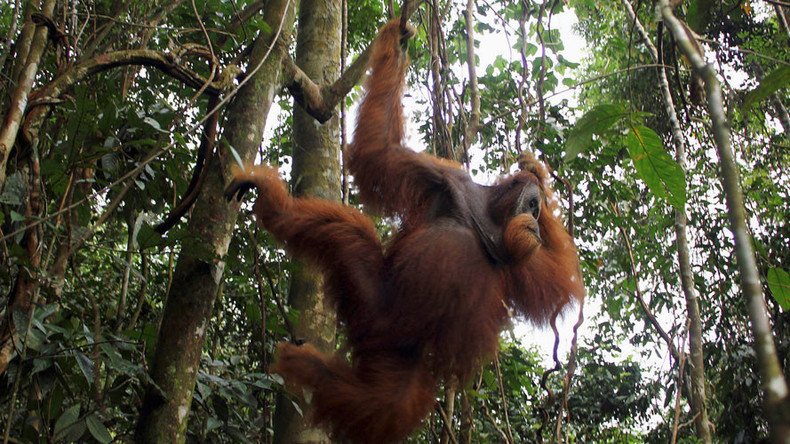Orangutan wows scientists by aping human speech

An orangutan has begun to “speak” by reproducing some of the vowel sounds used by humans—a development scientists claim may bring us closer to understanding the evolution of human speech.
The findings, conducted by researchers at the University of Durham, suggest that Rocky, an 11-year-old orangutan, was able to learn new sounds and control his voice the way humans do in a conversation.
During the 2012 study at Indianapolis Zoo, where Rocky still lives, a researcher played an imitation-style “do-as-I-do” game with the then-eight-year-old ape, making random sounds with variations in tone and pitch.
The vowel-like sounds made by the primate were then compared with sounds collected from more than 12,000 hours of observations of more than 120 orangutans from 15 wild and captive populations.
Lead researcher Dr Adriano Lameria, from the University of Durham, explained the findings indicate that critical skills needed for human speech may have been present in the common ancestor of our species and other great apes.
“It’s not clear how spoken language evolved from the communication systems of the ancestral great apes,” Lameria said.
“Instead of learning new sounds, it has been presumed that sounds made by great apes are driven by arousal over which they have no control, but our research proves that orangutans have the potential capacity to control the action of their voices.
“This indicates that the voice control shown by humans could derive from an evolutionary ancestor with similar voice control capacities as those found in orangutans and in all great apes more generally.
“This opens up the potential for us to learn more about the vocal capacities of early hominids that lived before the split between the orangutan and human lineages to see how the vocal system evolved towards full-blown speech in humans.”
READ MORE: Prehistoric ‘hobbits’ were not deformed humans, but another species – study
The study follows Lameria’s earlier work at Cologne Zoo with an orangutan named Tilda, which found orangutans can make sounds comparable to human consonants and vowels, using the same rhythm and pacing as human speech.












